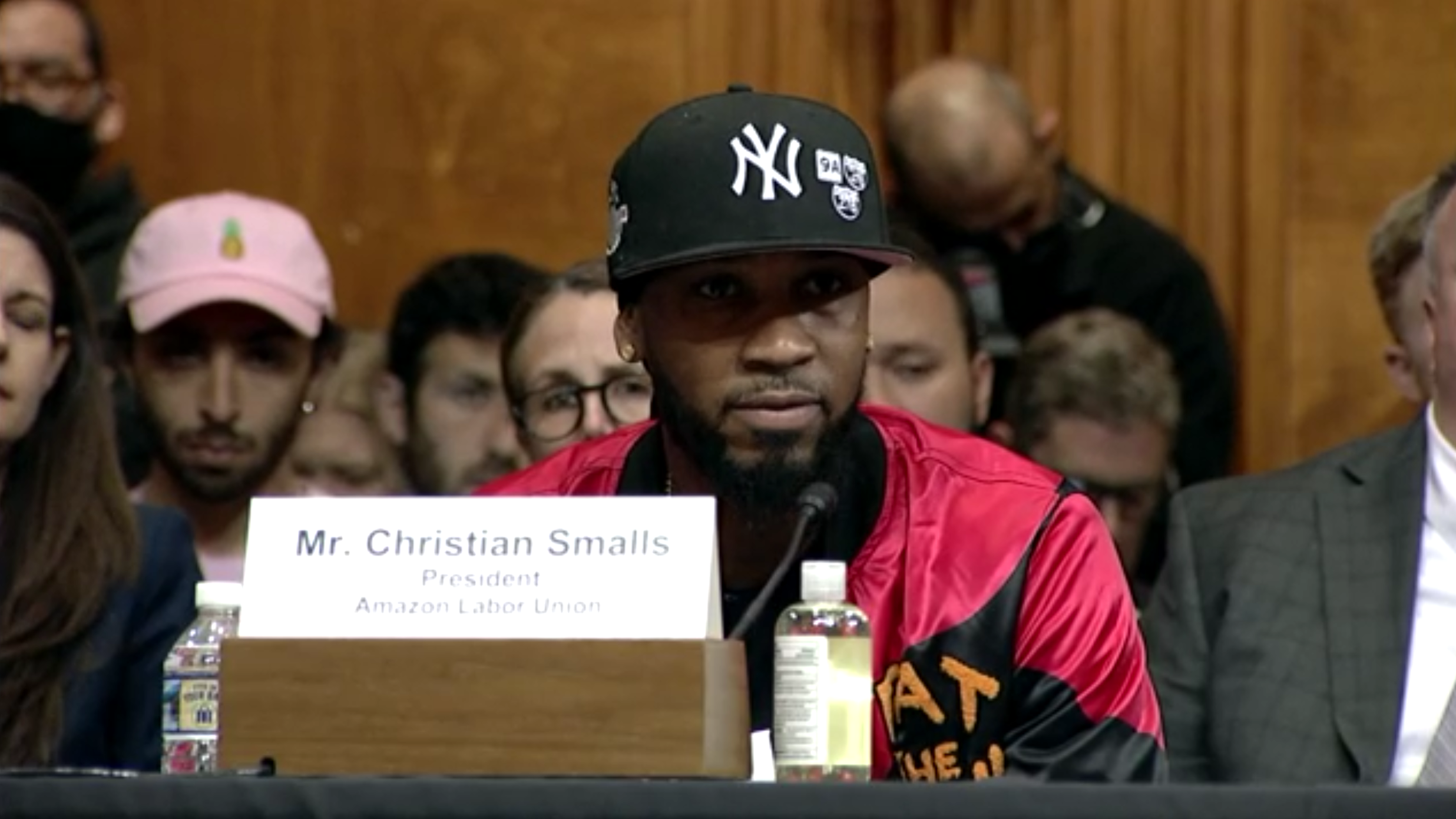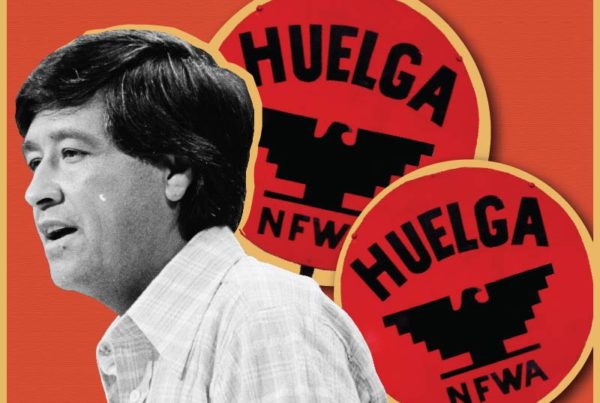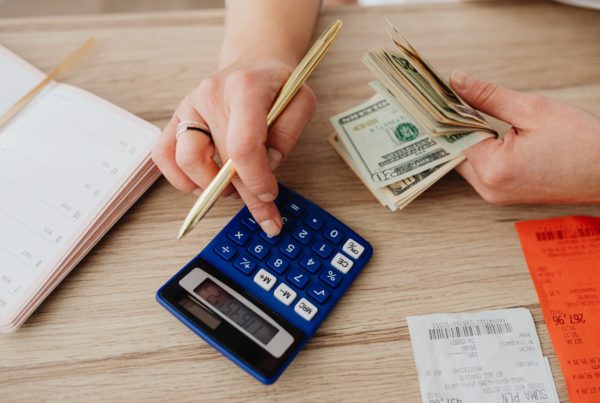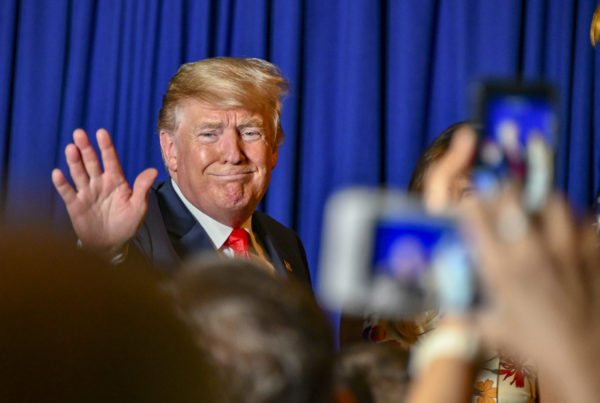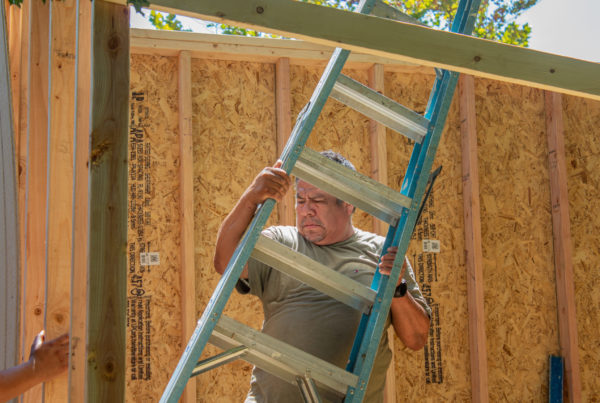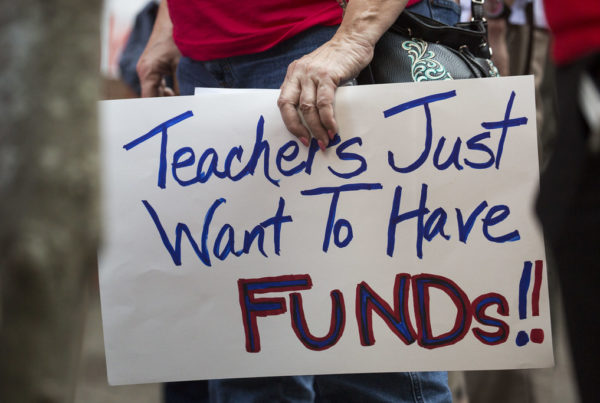A Gallup poll released last month revealed that just 12% of all Americans reported being members of labor unions – a shocking figure considering that in the 1950s, about a third of people were union members.
Recent union efforts at companies like Apple, Starbucks and Trader Joe’s have led to some arguing the the United States is in a new era of organized labor.
The highest profile of these drives happened in April, when workers in Amazon’s JFK8 warehouse on Staten Island formed the company’s first-ever union. The effort was led by Chris Smalls, a former Amazon employee who was fired for his efforts to unionize while he was working there.
Smalls joined the Texas Standard to talk about the victory, the state of organized labor, and whether such momentum is possible in a state like Texas. Listen to the story above or read the transcript below.
This transcript has been edited lightly for clarity:
Texas Standard: Jobs at Amazon are known for being physically exhausting, and employees are heavily monitored. Tell us a little bit about what it’s like to work in an Amazon warehouse.
Chris Smalls: Yeah, I used to tell my new hires if they had a gym membership, they might want to cancel it. These buildings are massive. You’re walking 10 to 12 hours when you’re coming to work here. You got to eat healthy. You got to drink plenty of water, stay hydrated. You know, that’s the only way you’re going to survive the physicality of the job.
You scored a major victory at an Amazon facility in Staten Island, which has a workforce of 8,300. But since then, there have also been facilities that voted against unionizing. Where do you think unionization stands right now when it comes to Amazon?
Well, I think it’s still growing. It’s still the beginning stages. You know, Amazon is going to spend millions of dollars to stop these campaigns, which they did with us. They’ve done this in other facilities. Unfortunately, some campaigns weren’t successful, but I think that workers are still going to continue trying. I know a lot of these workers personally. And then we have another facility that are getting ready for a vote.
President Joe Biden said he wants to be the most pro-union president in history, and he actually met with you back in May. How did that conversation go, and are you involved in working with him at all?
Oh, you know, it was a good conversation. I mean, I wasn’t the only union president there at the time. It was several other unions, and we had a brief conversation about what’s the future for labor in this country. But as far as support, you know, I’m hoping that we will receive some more additional support as far as some of these laws that we have in this country and also just hold holding companies accountable.
I was reading an article in Common Dreams, and it noted that organized labor is particularly weak in the United States; less than 12% of workers are members of a union. Why do you think that is? And do you see any significant change coming?
Once again, these laws that have been in place since the 30s, they’re very outdated. They’re more company-valued than employee-valued. And we are now starting to see the change in that time. You know, we’re still in the beginning stages, starting since the pandemic, really, when workers were deemed essential. We are now realizing our value is a lot more. And I think the only way we can really get the protections that we want, the benefits and wages that we want as the working class, we’re now forming unions.
And that’s why we’re starting to see the uprising of these unions again – just like the Great Depression, COVID-19 is a catalyst for all these new movements, especially with the Amazon Labor Union, Starbucks, Trader Joe’s, Apple. The list goes on and on. You’re going to start to see these unionizing efforts all across the nation.
Some people think your win at Amazon marked a kind of a milestone in the new age of organized labor. What do you think?
Absolutely. You know, our victory definitely inspired millions across the country and if not the world – being able to unionize. One of the most powerful companies in modern day history, I believe this is just the beginning for something that’s going to be monumental in this country for labor. We have a really important role to play in this country, and I’m just proud to be a part of it.
You’re up in the New York area; Texas has never been a real union-friendly state. Can you organize workers for Amazon in a place like Texas, from what you know about it?
Yeah. I mean, I don’t fall into the myth of “right to work states or southern states can’t be organized.” I feel like right now we have an opportunity to change those narratives. And I’ve been down to Texas. I visited for the first time over the summer. I’ve met a lot of organizers, a lot of great young adults down there that are doing great work. Like there’s some huge Tesla factories down there that I heard of that are organizing. Starbucks campaigns that are organizing. Amazon facilities, Walmart – they’re all down there. And I think that workers have to realize that it’s going to take a collective power and it doesn’t matter what state you are in. The work issues are related to every state.
It sounds like you don’t buy the narrative that unions are a thing of the past, but that you see quite the future for them. Why do you think that is, especially given the economy that we’re in?
I believe there’s an opportunity for unions to adapt to the 21st century, more so than the old-school traditional style. Established unions, they have different ways of organizing. Maybe that just was outdated. That’s why we couldn’t get Amazon done in the last 28 years. And I think now we’re starting to see what a lot of these independent worker-led unions, like the ALU, for example. This type of organizing is a new way for us to really galvanize behind. And I think that by that, we’re making unionizing cool again. So I just think right now it’s expanding and having these conversations in different spaces will help the labor movement continue to grow.


